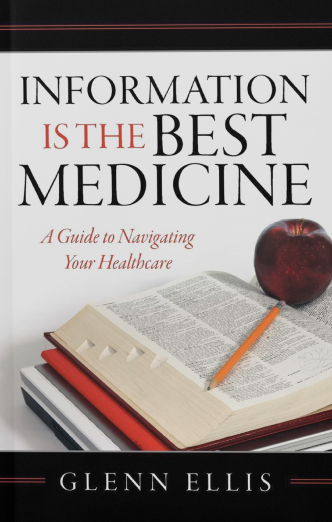Periods of extremely hot weather (like the heat waves currently blanketing the country) can cause serious health problems for everyone.
Now that we are entering summer, and attending events in hot weather, there are some points that everyone should be aware of when out in hot, humid weather. Most of us are accustomed to being in air conditioning almost all of the time. When we attend a hot outdoor event, being unaccustomed to the sun, heat, and increased humidity, some people have problems dealing with the extreme variation of circumstances.
Normally, the body cools itself by sweating. If temperatures and humidity are extremely high, however, sweating is not effective in maintaining the body’s normal temperature. When this happens, blood chemistry can change and internal organs–including the brain and kidneys–can be damaged. Heat also can be stressful if the temperature changes suddenly, since it usually takes several days for the body to adjust to heat.

One of the most overlooked risks of summertime is drinking alcohol.
If you think boozing it up at the summer BBQ or enjoying liquid lunches on the beach is a good idea – you should think again.
Drinking alcohol in the hot summer weather can leave you dehydrated, confused and more susceptible to accidents and injuries. Interestingly, Time Magazine reports that 40% of all beer sold in the US are consumed from May to August.
Heat and acts as a diuretic, meaning it causes the body to lose more fluid through urine, resulting in dehydration. If fluids in the body are not replaced, such as by drinking water, you could suffer a heat-related illness, like heat stroke.
In fact, one main danger of drinking during the hot summer weather is the risk of heat stroke caused by dehydration. When the body’s temperature rises, we sweat and the sweat evaporates to cool the body. However, in hot, humid weather, the sweat does not evaporate properly and body heat rises. The body then tries to sweat even more in order to cool itself down.
Even an athlete in top condition can experience heat illness during extreme temperatures. This condition occurs in three stages. The first includes heat cramps due to loss of sodium while sweating. Second is heat exhaustion caused by dehydration. Heatstroke, the third and most serious stage, can lead to shock, organ failure, and death.
Alcohol consumption can also affect the central nervous system causing a person to lose inhibitions resulting in poor judgment and recklessness.
The Centers for Disease Control and Prevention (CDC) reports that alcohol use is a factor in up to 50 percent of adolescent and adult deaths associated with water recreation. Nearly one-third of boating fatalities involve alcohol use.
The news isn’t any better if you are a “week-end warrior”, athlete or a runner.
The link between dehydration and physical performance is:
1) your blood volume decreases, so less blood returns to your heart;
2) the amount of blood your heart pumps with each beat decreases;
3) less oxygen-rich blood reaches your working muscles;
4) your muscles have less oxygen with which to produce energy aerobically;
5) you must run at a slower pace.
In addition, sending blood to your skin is one of your body’s cooling mechanisms. When you are dehydrated, there is less blood available to be sent to the skin and less for the working muscles, so performance decreases and the risk of heat injury increases.
Drink lots of water before, during and after physical activities in the heat or hot sun. Your body loses fluid through sweating and the fluids must be replenished. Avoid caffeine and highly sugared beverages, such as soft drinks since both caffeine and sugar act as diuretics and cause you to loose more fluid. The popular sports drinks are not necessary and only end up giving you more calories than you is necessary. According to some medical professionals who were consulted, they stated that we do not need electrolyte replacement since our diet is usually salty enough at an event.
To protect yourself during hot weather activity, take steps to cool down. The CDC suggests the following:
Also remember that even moderate drinking–up to one drink per day for women and two for men–can put you at risk during hot weather activity. Your safest bet for summer fun is to stay alcohol-free.
If you are thirsty, your body is already 15% dehydrated. Don’t wait until you are thirsty to drink.
Be aware of how often you urinate and, if possible, the color of the flow. You should be drinking enough liquids that you need to urinate at least every two hours and the urine should be clear yellow; if it is dark yellow or orange, you are in trouble and get fluids into your system immediately.
Approximately 80% of our water intake comes from drinking water and other beverages, and the other 20% comes from food. Assuming these percentages are accurate for most of us, the recommended amount of beverages, including water, would be approximately 9 cups for women and 12.5 cups for men.
While 20% may seem like a lot of fluid to get from food, many common food items are mostly water.
Here are some foods with high water content, according to the American Dietetic Association:
By the way, many of us hear the term; “drink plenty of fluids” often when referring to drinking water. This means at least 1-1/2 to 2 quarts of fluids daily. This can be water, fruit juice, or fruit-flavored or even (unfortunately) carbonated drinks.
Since aging can cause a decreased thirst sensation, elderly persons should drink water, fruit juices or other fruit drinks at regular intervals during the day, even if they do not feel thirsty.
